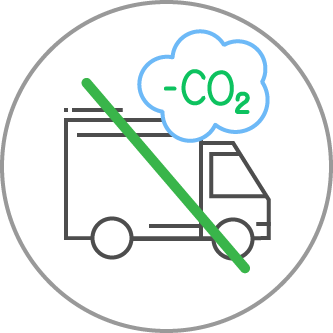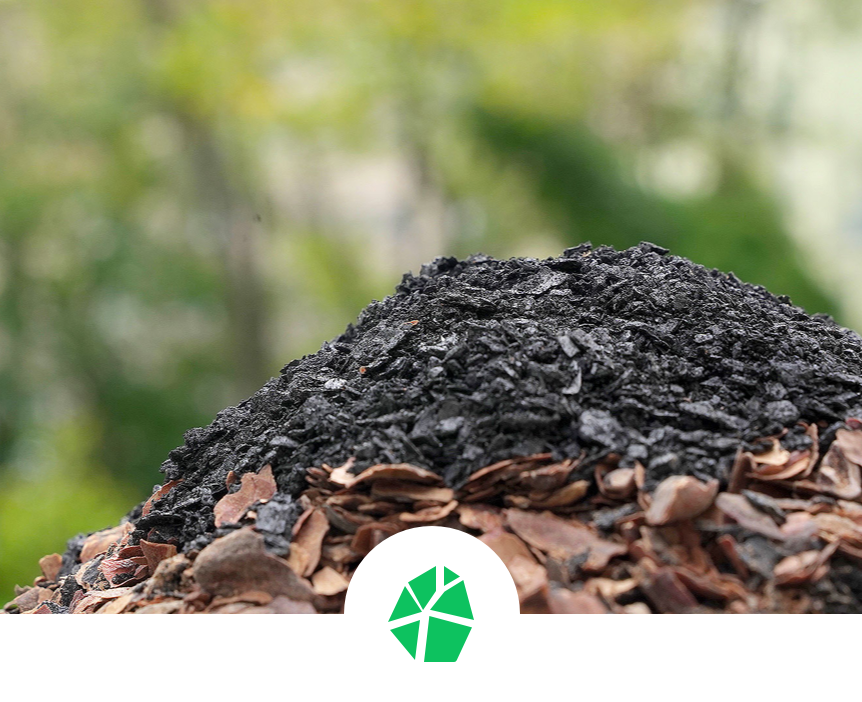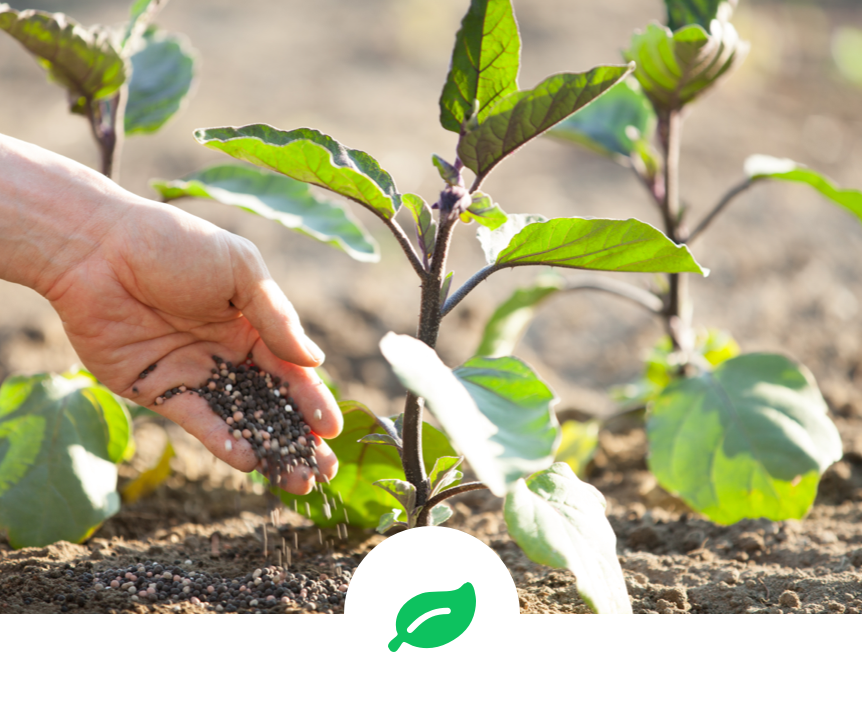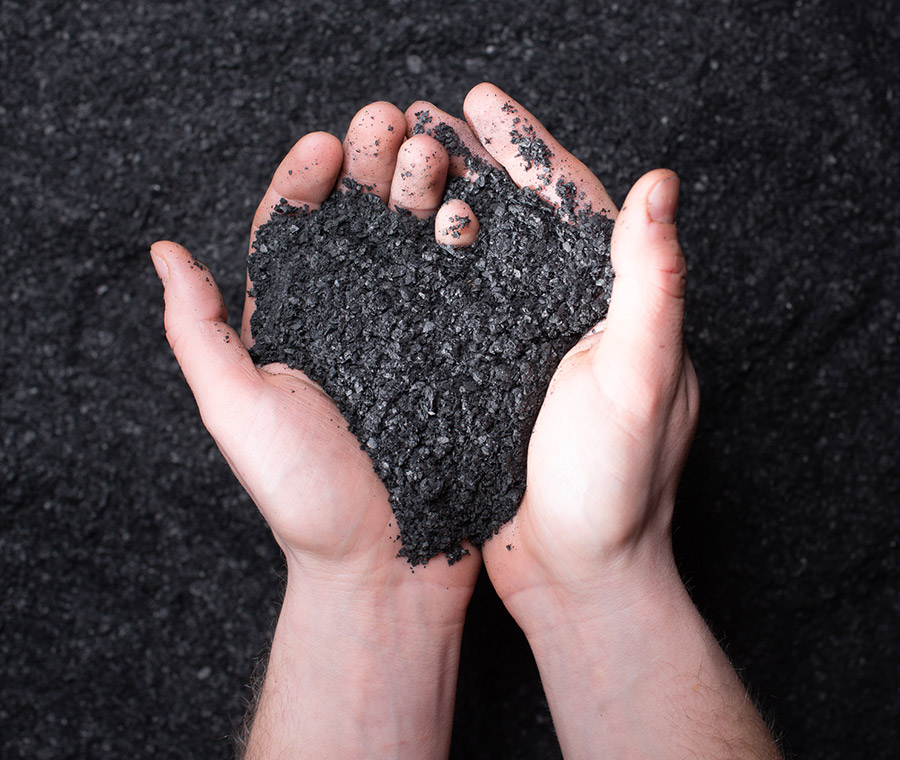
Biochar for
sequestering and reducing CO2
Threefold for the climate
One ton of our biochar sequesters up to 2.4 tonnes of CO2 in the long term, transforming soils from a carbon source into a carbon sink. Not only are CO2 emissions reduced, the process also leads to negative emissions. Our biochar is made from waste material that is usually not put to efficient use.
Our process has a threefold positive climate impact

Reduction of CO2 by avoiding transport
The transport of residual waste is avoided, and biochar significantly reduces the volumes for onward transportation.
Reducing CO2 by generating climate-neutral energy
Our plant generates climate-neutral steam, which, in turn, is fed back into the production processes. That way, natural gas is replaced.
Capture of CO2
through the use of biochar.
Biochar is both a valuable input material and a CO2 sink. It increases the carbon content in the soil on a permanent basis and thereby facilitates humus formation.

“The production and use of biochar offers a holistic concept for decarbonising industrial processes. It allows us to simultaneously increase the use of renewable energy and resource efficiency and helps with sustainable farming methods for our customers’ entire supply chain”
Felix Ertl, Co-Founder

Production of biochar from organic waste
We use organic residues for producing biochar. and are thereby transforming it into a natural sink of CO2. At the same time, our technology generates renewable energy from the same waste material.
Find out more

Biochar – an all-rounder
Biochar is a fine-grain, highly porous material consisting largely of carbon and minerals. It acts as a carrier for microorganisms and improves the cation exchange capacity.
Find out more

